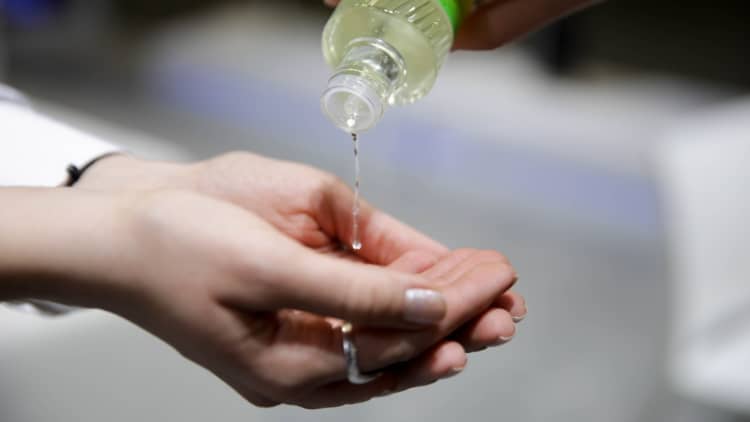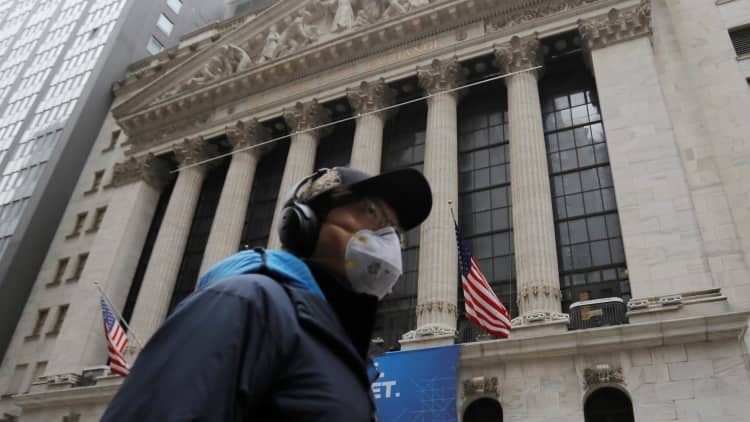
Private labs that began running coronavirus tests in New York City on Friday are reporting so many new cases that public officials are having trouble keeping up, Mayor Bill de Blasio told reporters Tuesday.
"They're coming in so intensely now that being able to give you a detailed case breakdown, we're not in that position to do that at this moment because there are so many coming forward," de Blasio said, speaking at Bellevue Hospital in Manhattan. "As of 12 noon ... the number of confirmed cases in New York City is 36. That's 16 new since yesterday and 11 new even since this morning at 7 a.m. when I last spoke about this."
Almost 2,000 New York City residents are in voluntary isolation while 30 people are in mandatory quarantine, he said.
COVID-19 has infected more than 173 people across New York state, Gov. Andrew Cuomo told reporters earlier Tuesday. Of that, 108 confirmed cases are in Westchester County, just north of New York City.
Dr. Mitchell Katz, CEO of NYC Health + Hospitals, said local hospitals are bracing for an onslaught of COVID-19 cases, adding that local hospitals are preparing to discharge current patients to handle incoming coronavirus patients.

"We are prepared at Bellevue and all of our hospitals that were we to have many patients with respiratory distress, we would rapidly discharge those patients who are in the hospital now and do not need to be in the hospital because they can be safely cared for at home," Katz said.
In emergencies, they'll cancel outpatient surgeries and visits, he added.
New York City officials are waiting on 195 test results; 258 tests have come back negative so far, they said. They are training school nurses to become "disease detectives," de Blasio said. City officials are also worried about blood shortages as corporations cancel company blood drives.
De Blasio said there was no danger in giving blood.
"We must maintain our supply. At this moment our supply is OK, but we're concerned we have seen some workplace blood drives canceled. That is a worrisome sign," he said.
De Blasio advised New Yorkers against taking cruises of any kind, saying that they are going to start checking passenger temperatures and denying boarding to anyone with a temperature above 100.4 degrees.
Earlier Tuesday, New York Gov. Andrew Cuomo said he deployed the National Guard to New Rochelle, a coronavirus hot spot just north of New York City. Westchester County, where New Rochelle is located, had 108 COVID-19 cases out of the 173 confirmed infections across the state, according to state health department data Tuesday.
Cuomo compared the number of cases in New York to Washington state, where officials said an outbreak has spread to at least 162 people, killing 22 mostly elderly residents. Across the U.S., at least 25 people have died, but none in New York so far. A man in his 60s died from COVID-19 in Bergen County, New Jersey, state officials confirmed Monday.
Washington state Gov. Jay Inslee said the number of COVID-19 cases there could reach 64,000 by May if health officials aren't able to contain the outbreak now.
The actual number of infections in Washington state right now could be closer to 1,000 or more, and cases in epidemics like this one tend to double every few days, Inslee said, citing infectious disease specialists at a press conference earlier Tuesday.
"If you do that math, it gets very disturbing," he said. "It gets to a very large number very quickly. If there are 1,000 people infected today, in seven or eight weeks, there could be 64,000 people infected in the state of Washington."

